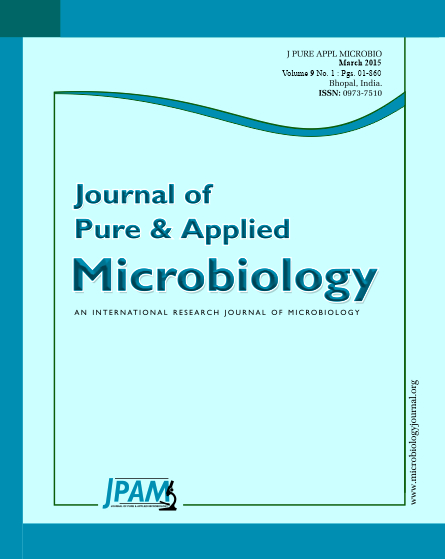Application of raw livestock manure in agricultural practice could potentially cause contamination of foodstuffs with pathogenic bacteria such as Salmonella spp. In this study, manure from cattle, goat and poultry were solarized during eight weeks in order to evaluate the Salmonella survival. Six piles of each type of manure were cover with transparent plastic and half of the treatments were added with 50% of water basis on manure dry weight. Salmonella was detected previous to solarization process in the three manure types and at the last week was not detected at neither with and without water addition treatments by microbiological and PCR detection. Treatments with water addition reached the highest temperatures and had the lower log10 CFU g-1 level of Salmonella. The solarization process by itself can be effective in the reduction of pathogens level, however, the use of manure with some water content can improve the eliminating pathogens process. Thus, properly solarized manure can be safely used in food crop production while eliminating the likelihood of microbial contamination.
Livestock manure, solarization, manure-water content, Salmonella survival
© The Author(s) 2015. Open Access. This article is distributed under the terms of the Creative Commons Attribution 4.0 International License which permits unrestricted use, sharing, distribution, and reproduction in any medium, provided you give appropriate credit to the original author(s) and the source, provide a link to the Creative Commons license, and indicate if changes were made.


